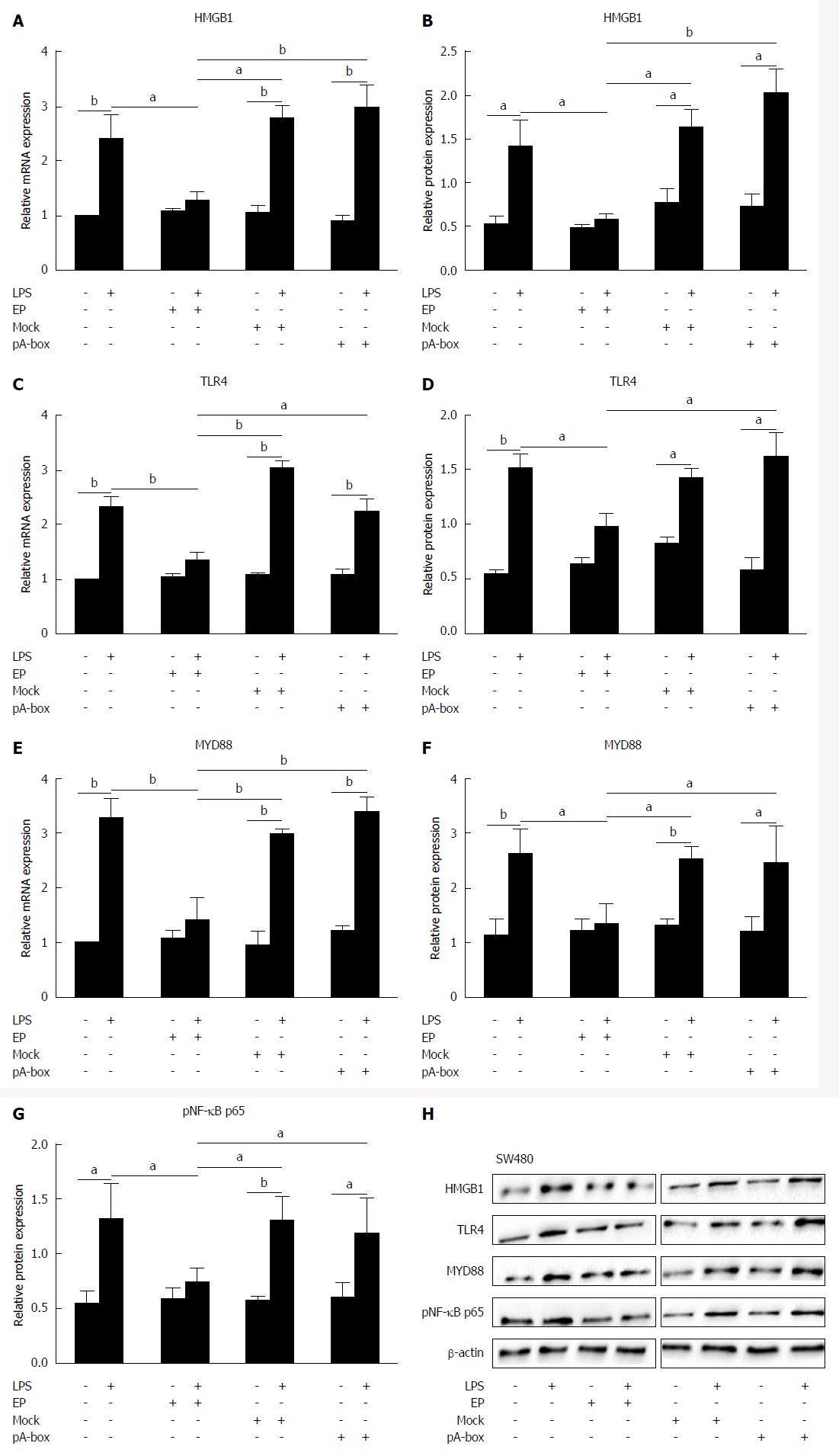Copyright
©The Author(s) 2015.
World J Gastroenterol. Jul 7, 2015; 21(25): 7764-7776
Published online Jul 7, 2015. doi: 10.3748/wjg.v21.i25.7764
Published online Jul 7, 2015. doi: 10.3748/wjg.v21.i25.7764
Figure 4 Expression of the HMGB1 protein and toll-like receptor 4 signaling pathways in lipopolysaccharide-stimulated SW480 cells.
After pretreatment with EP (5 mmol/L, 1 h), the SW480 cells were treated with LPS (1 μg/mL, 24 h). The HMGB1 protein, TLR4, MYD88, and pNF-κB p65 mRNA and protein levels were determined by real-time PCR (A, C, E), densitometric quantification and representative western blotting with β-actin as the loading control (B, D, F, G, H). LPS increased the HMGB1, TLR4, MYD88, and pNF-κB p65 mRNA and protein levels in the LPS-stimulated SW480 cells compared with the LPS-untreated group, but EP downregulated these mRNA and protein levels in the LPS-stimulated SW480 cells. By contrast, HMGB1 A-box failed to downregulate the HMGB1, TLR4, MYD88, and pNF-κB p65 mRNA and protein levels compared with the mock-transfection group. The data are expressed as the mean ± SD and are derived from three independent experiments, which were each performed in duplicate. The means with letters above them are significantly different (aP < 0.05, bP < 0.01 vs control).
-
Citation: Wang FC, Pei JX, Zhu J, Zhou NJ, Liu DS, Xiong HF, Liu XQ, Lin DJ, Xie Y. Overexpression of HMGB1 A-box reduced lipopolysaccharide-induced intestinal inflammation
via HMGB1/TLR4 signalingin vitro . World J Gastroenterol 2015; 21(25): 7764-7776 - URL: https://www.wjgnet.com/1007-9327/full/v21/i25/7764.htm
- DOI: https://dx.doi.org/10.3748/wjg.v21.i25.7764









